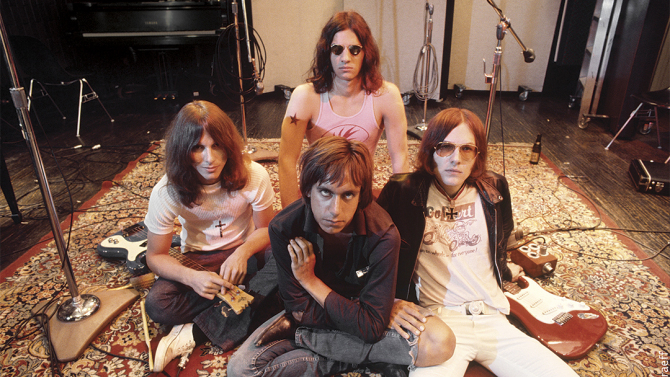By Mark Saldana
Rating: 3 (Out of 4 Stars)
In 1967, Ann Arbor, Michigan, The Stooges made their bid to take the music world by storm. Singer James Newell Osterberg, Jr., a man who would eventually earn both fame and infamy under the stage name Iggy Pop, and his band of visionary musical misfits hoped to bury the hippie culture of the 1960s with an incendiary, but stripped down brand of rock ‘n roll. With an explosive sound, and an equally explosive stage show, The Stooges would bring shock and awe to the rock world as the sixties ended and the seventies began. However, like most bands and artists who live like they perform, The Stooges were not destined to last too long together and after only seven years and three albums, the group broke-up. In the short time they performed together, this group would inspire a new brand of rock and several generations of artists to come.
Jim Jaramusch directed this fun and engaging documentary about Iggy and the Stooges, and takes his audience from the early years of the band through today, covering both their initial and long term impact and influence. Fans of the group will, no doubt, enjoy this retrospective, but will notice that this film doesn’t offer anything too surprising or new. This is a documentary better suited for people who know little to nothing about the band. As for me, I cannot call myself a massive fan of the band, but someone who enjoys their music and acknowledges the impact they had on rock. And as far as this documentary is concerned, I had hoped for something more insightful and intimate about Iggy and his bandmates.
The documentary comes across as a sanitized version of the life and career of the group. In the interviews, Iggy especially remains tight-lipped about some of the details. If one is looking for an indepth exposé, this film will ultimately disappoint. For me the fact that Jaramusch presents his film in a mostly conventional music documentary style is more disappointing. The filmmaker is known for his unique style of presentation and this movie does not reflect this at all. Sadly, it comes across as conventional when its subject is a band that sought to demolish conventions. Don’t get me wrong, I still managed to enjoy this retrospective about the “godfathers of punk,” but I just expected something more provocative, insightful, and inventive. Gimme Danger plays it way too safe.
